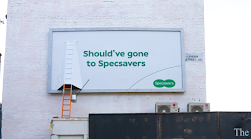Regulation
1) What is regulation and why do media industries need to be regulated?
Regulation is rules. Media industries need regulation because numerous amount of times there have been people killed due to the freelance of social media.2) What is OFCOM responsible for?
The Office of Communication (OFCOM) is responsible for regulating television, radio, telephone services and some aspects of the internet, although the areas most relevant to media students are TV and radio.
3) Look at the section on the OFCOM broadcasting code. Which do you think are the three most important sections of the broadcasting code and why?
Section 4: Religion - A persons religion is personal
Section 1: Protecting the Under-Eighteens- Under-18's are easily influenced therefore can lead to death.
Section 2: Harm and Offence- A person killed themselves because of harm and offence.
Yes, this is because showcasing children's films and then moving on to wolverine is not a good choice.
5) List five of the sections in the old Press Complaints Commission's Code of Practice.
Section 1: Accuracy
Section 2: Opportunity to Reply
Section 3: Privacy*
Section 4: Harassment*
Section 5: Intrusion Into Grief and Shock
6) Why was the Press Complaints Commission criticised?It’s critics claim that the lack of statutory powers means that when a newspaper has been found to breach the rules, the best a victim can hope for is an apology, which often does not get sufficient prominence in the paper. Critics also argue that many newspapers seem to fly in the face of the rules on a pretty regular basis and that very little is done to
stop them. It’s defenders point out that a free press is a vital part of a functioning democracy. If statutory rules were imposed, newspapers ability to hold politicians and other people in power to account would
be greatly diminished.
7) What was the Leveson enquiry and why was it set up?Throughout 2011 and 2012, an inquiry into the “culture, practice and ethics of the press” was held, mainly as a result of the so-called phone hacking scandal.
8) What was the PCC replaced with in 2014?
On 8th September 2014, the PCC was replaced by the Independent Press Standards Organisation (IPSO). This new body (like the PCC) has been set up by the newspaper industry itself and it’s code of practice is essentially the same as the code administered by the PCC. This has led to criticism that the new body is effectively the PCC under a
different name.
9) What is your opinion on press regulation? Is a free press an important part of living in a democracy or should newspapers face statutory regulation like TV and radio?Press regulation is need to be as safe as possible.
10) Why is the internet so difficult to regulate?
There are many people using it.

Comments
Post a Comment